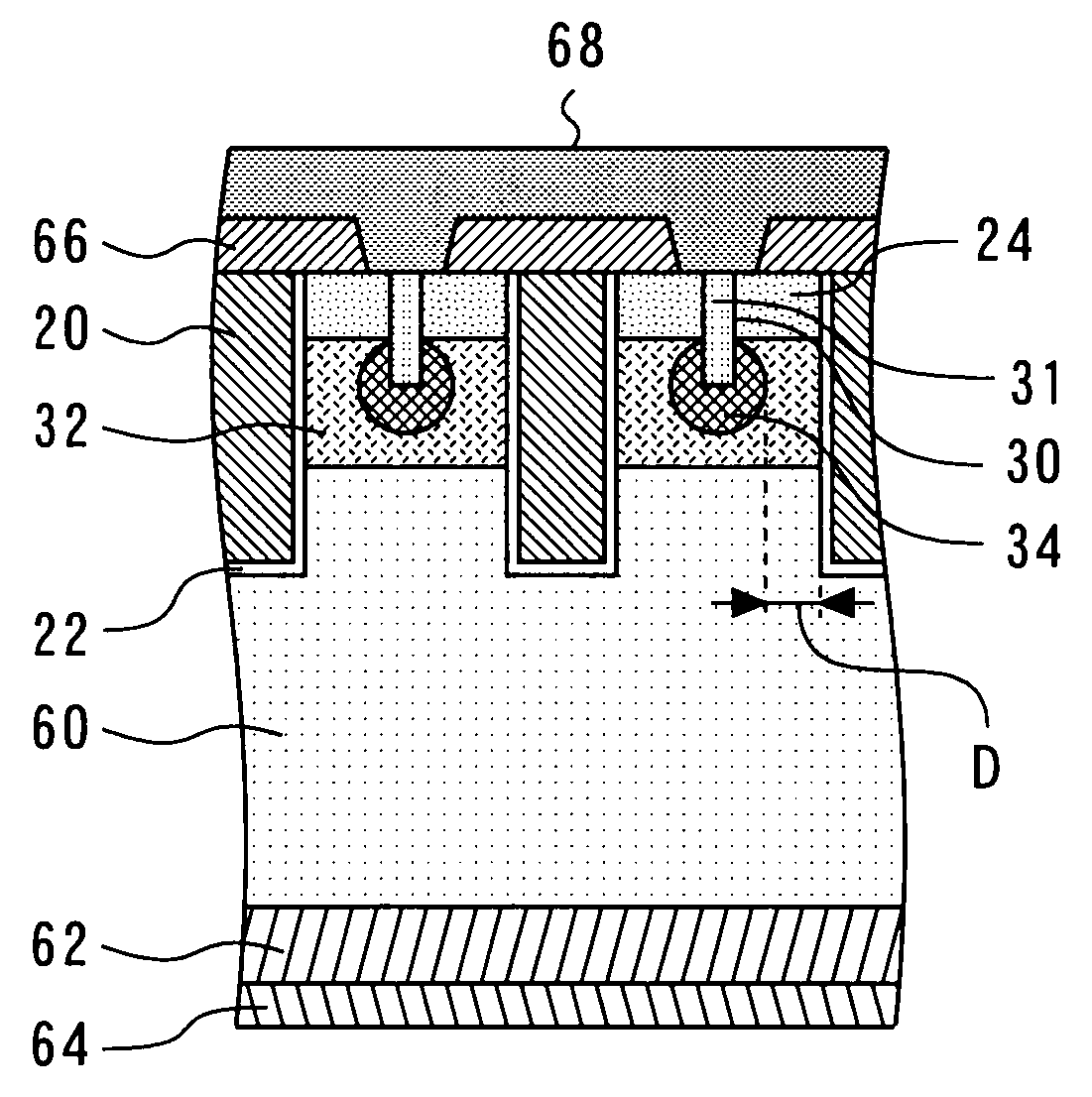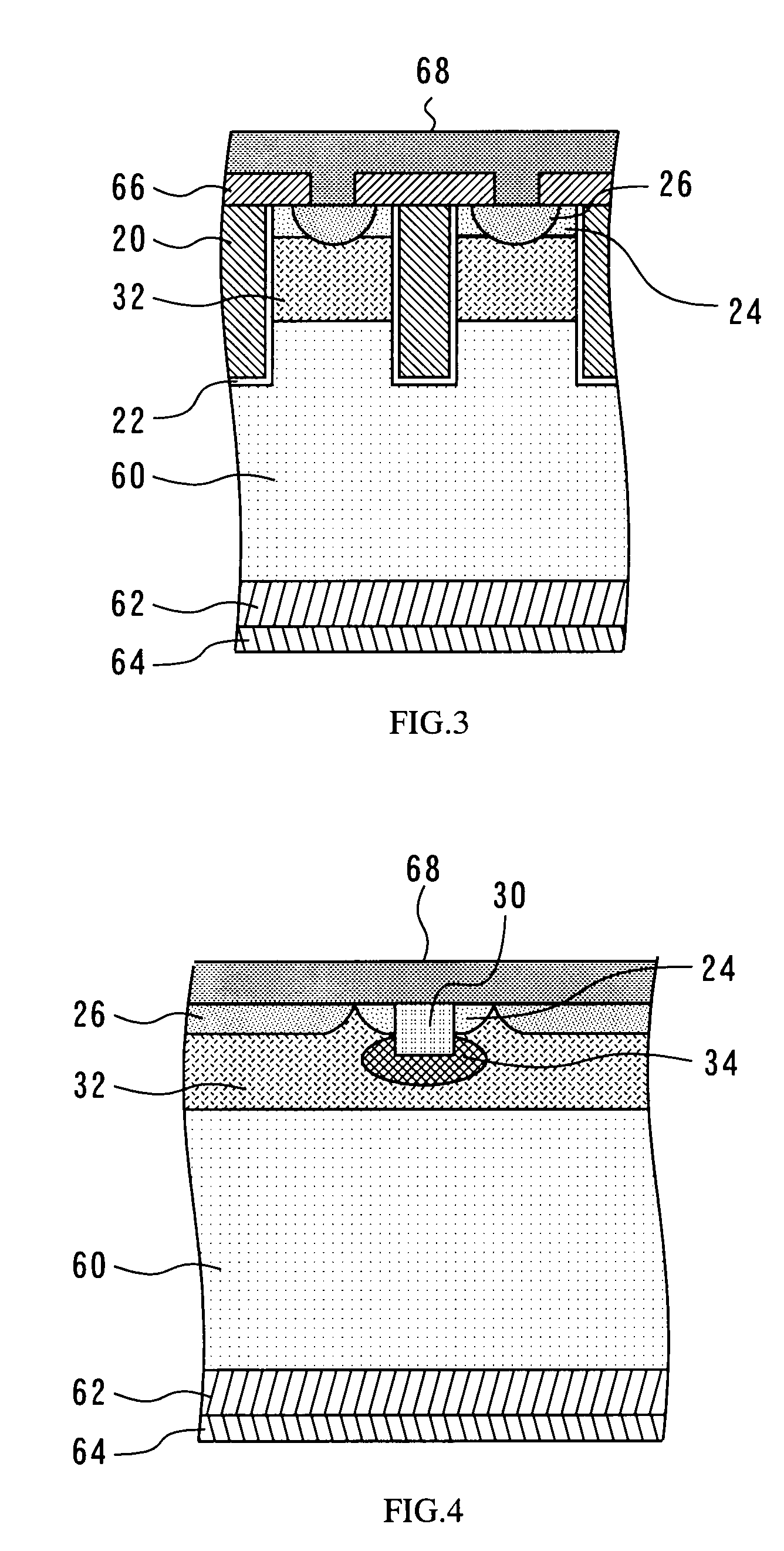Semiconductor device
a technology of semiconductor devices and dielectric capacitors, applied in the direction of semiconductor/solid-state device manufacturing, semiconductor devices, electrical apparatus, etc., can solve the problems of over-exchange of soa and damage to semiconductor devices, and achieve the effect of suppressing latch-up and improving rbsoa
- Summary
- Abstract
- Description
- Claims
- Application Information
AI Technical Summary
Benefits of technology
Problems solved by technology
Method used
Image
Examples
first embodiment
[0030]A first embodiment of the present invention relates to a semiconductor device that is capable of providing latch-up suppression while reducing the influence upon the characteristics of the semiconductor device. FIGS. 1 to 5 are diagrams illustrating the semiconductor device according to the first embodiment. Elements that are shown in these figures and designated by the same reference numerals may not be redundantly described because they are based on the same concept or made of the same materials. This is also true of the drawings illustrating the other embodiments.
[0031]FIG. 1 is a plan view of the semiconductor device according to the present embodiment. A trench gate 20 to which a gate drive signal is transmitted is formed in contact with a gate insulation film 22. A source region 24 is formed in contact with the gate insulation film 22. The source region 24 is a region where an n-type impurity is doped. Further, a P+ region 26 is formed in contact with the source region 2...
second embodiment
[0060]A second embodiment of the present invention relates to a semiconductor device that decreases the resistance of a base region by forming a break in a dummy trench. The second embodiment will now be described with reference to FIGS. 6 to 17.
[0061]FIG. 6 is a plan view of the semiconductor device according to the present embodiment. FIG. 6 indicates that a dummy trench 23 is formed linearly and discontinuously with a break. The dummy trench 23 is usually formed in parallel with the trench gate 20. The source region 24 is formed along the gate insulation film 22. The source region 24 has a short portion and a long portion, which are formed in the direction from the gate insulation film 22 to the dummy trench 23. The long portion is formed to reach the break in the dummy trench 23.
[0062]FIG. 7 illustrates the break in the dummy trench 23. The dummy trench 23 is a trench gate that is thinned out, and does not receive the supply of a gate drive signal. The dummy trench 23 is formed ...
PUM
 Login to View More
Login to View More Abstract
Description
Claims
Application Information
 Login to View More
Login to View More - R&D
- Intellectual Property
- Life Sciences
- Materials
- Tech Scout
- Unparalleled Data Quality
- Higher Quality Content
- 60% Fewer Hallucinations
Browse by: Latest US Patents, China's latest patents, Technical Efficacy Thesaurus, Application Domain, Technology Topic, Popular Technical Reports.
© 2025 PatSnap. All rights reserved.Legal|Privacy policy|Modern Slavery Act Transparency Statement|Sitemap|About US| Contact US: help@patsnap.com



